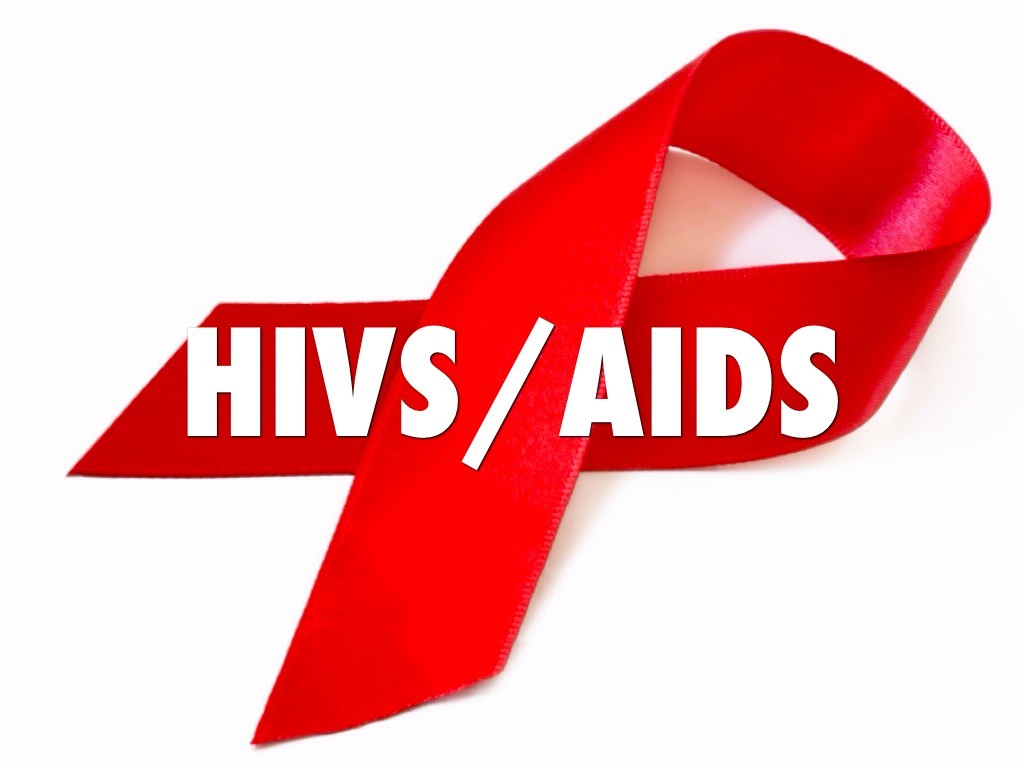Health
Sultan of Sokoto Restates Commitment to Routine Immunization

The Sultan of Sokoto, Alhaji Sa’ad Abubakar, has reiterated the commitment of traditional institutions to work with government to ensure that communities have access to routine immunization across the zone.
The sultan made this known in his remarks at an event organized by the National Primary health care development Agency (NPHCDA), in collaboration with the Sultan Foundation for peace and development with Northern Traditional leaders committee (NTLC) on Public Health Care (PHC) strategic meeting on Wednesday in Kaduna.
He said the meeting discussed with traditional leaders on ways to reach totally inaccessible and displaced Communities of Kaduna, Niger and Katsina States for routine immunization.
The Royal father said they will ensure that every child gets immunized while also discussing the challenges that make some of them inaccessible.
According to him, after several engagements on issues related to routine immunization, some of the challenges faced were the lack of implementation, while encouraging communities to always take their children for routine immunization.
He called for more awareness on the importance of immunization.
On his part, the chairman, Northern traditional leaders’ committee on primary health care delivery, Emir of Argungu Alhaji Sama’ila Mera, said the need to convene the meeting arose from the Situation Report received by the First Quarter NTLC Review Meeting from Zamfara.
He said in a report to the meeting, the Zamfara State NTLC representative stated that the devastating security situation in the state has made access to many communities and children difficult or impossible, creating a risk of an outbreak of Vaccine-Preventable Diseases, especially the mutated vaccine-derived polio virus.
According to him, the meeting resolved to contact all the Emirates and Chiefdoms in the six states with a view to collecting the list of all communities displaced and where they relocated to, including all communities under the control of bandits who are not enjoying government presence or protection.
“We need to know the population of people affected and if possible, the number of children under the age of five in the communities,” he added.
The meeting also resolved, on receipt of feedback information, to call for a meeting with the leaders of line-listed communities to listen and work with them to plan strategically how best to reach every child in such communities with a vaccine and medical support for pregnant and lactating mothers.
He further explained that the engagement will take situation reports and mitigation suggestions from 48 Districts of 34 LGAs from Kaduna, Niger, and Katsina States.
The meeting called on each District Head to speak about the situation in their areas of administration and suggest how best the government and Development Partners can work to ensure that every child and mother are reached with a vaccine and desired medical support no matter the security situation.
Speaking also at the event, Dr Hadiza Balarabe, who represented Gov. Uba Sani at the strategic meeting, said the meeting is apt considering the persistence issue of non-vaccination of children. (NAN)
Health
APHPN President Seeks Enhancement of Public Health Delivery

From Mike Tayese, Yenagoa
The Association of Public Health Physicians of Nigeria (APHPN), has ascribed the current wave of movement of medical workers in the country abroad to insecurity and desire for better Welfare packages.
The National President of APHPN) Dr.
Terfa Kene, while speaking during his three day visit to Bayelsa State to seek support to enhance public health delivery in the state, urged other medical workers who are still in Nigeria to work for the improvement of public health in the country.Dr. Kene, also stated that once salaries of the health workers are improved and insecurity issues tackled, the challenge of migration of medical personnel would stop, adding that his mission to Bayelsa State is to ensure proper implementation of Primary Health Centre adoption.
He said: “There are factors responsible for people who are japa from the county. One of the factors is where they want to go, the health system is well advanced and people want to go and practice there and we may not have control over those interests.
“If the issue of insecurity is addressed, people will not want to run away from their locations. If the salaries of health officials are improved, then we would also know that you have that intended capacity. It’s not just addressing one component, there are several others that the government needs to work on and address, once they are addressed, the issue of migration will be reversed.
“Yes there is japa, but then it’s not everybody that is leaving the country, so those that are here, we should make our contribution as public health physicians.”
Dr. Kene, who also supervised the Medical Outreach for the people of Agbere community in Sagbama local government organised by APHPN, and visited some health agencies in the state, Bayelsa Health Insurance Scheme (BHIS), and the State Coordinator of World Health Organization, said the government need both the infrastructure, human personnel and medications to ensure well-being of the people.
He said: “When we are talking about the development agency of the government, we are talking about PHC, we are talking about health insurance, we are talking about the ministry of health, we are talking about other organs of government that have to do with public health.
“The important thing is that we build relationships with the local Communities by making an impact in contributing to public health in the entire Nigeria not just only Bayelsa state, that is why we organized medical outreach in the Agbere community. We are covering both the primary Healthcare center and cottage hospital nearby.” He said.
Also Speaking, the Chairman of APHPN in Bayelsa State, Dr. Enebipamo Amba-Ambaiowei, said a s public health physicians, they have a duty to provide healthcare, engage and make impact amongst members of the Communities.
He said why they carry out the medical outreach is to help the rural dwellers improve their healthcare and lives generally, adding that over hundred people were attended to during the outreach.
A beneficiary, Akali Anthony, said he had challenges of malaria and diabetes, but after medical screening he was administered with drugs, which saved him the high cost of affording them.
Health
Plateau Records 1,910 New HIV Cases in Nine Months

Plateau State has recorded 1,910 new HIV-positive cases between January and September 2025 following the screening of 98,403 residents, the Commissioner for Health, Dr. Nicholas Ba’amlong, announced during a press conference held on Sunday ahead of World AIDS Day 2025.
Of these positive cases, 1,859 persons are already placed on antiretroviral therapy (ART) across health facilities in the State, as the Commissioner revealed the State Governor, Caleb Mutfwang has recently approved the release of funds for the procurement of HIV dual test kits which have been distributed to health facilities to enhance testing.
Speaking on the theme, “Overcoming Disruption: Sustaining Nigeria’s HIV Response,” the Commissioner said the statistics confirm that HIV remains a significant public health concern despite progress made over the years.
In 2024 alone, Plateau State recorded 2,786 new infections and 460 HIV-related deaths.
According to him, the estimated number of People Living with HIV (PLHIV) in Plateau stands at 51,370, with 47,056 currently on ART as of September 2025, comprising 14,001 males and 33,055 females. Among children, a total of 1,835 are receiving ART, including 882 boys and 953 girls.
Highlighting progress in preventing mother-to-child transmission, the Commissioner explained that 30,743 pregnant women were tested for HIV within the same nine-month period, out of which 39 tested positive and were immediately linked to care.
He attributed the State’s steady decline in new infections to expanded awareness campaigns, strengthened partnerships, and the extension of HIV testing services to over 900 health facilities, including faith-based institutions and traditional birth centres.
Dr. Ba’amlong also noted a recent national policy shift, announcing that the Federal Ministry of Health has approved the reduction of the age of consent for HIV testing and counselling to 14 years, a step aimed at increasing testing among adolescents, a group identified as highly vulnerable to HIV transmission.
He reaffirmed the government’s commitment to scaling up treatment points, ensuring uninterrupted access to ART medications, supporting youth-friendly services, ending mother-to-child transmission, and combating stigma and discrimination.
The State also pledged support for research initiatives targeted at improving prevention and treatment outcomes.
He also praised healthcare workers, implementing partners, NGOs, and community organisations for their collective contribution to the state’s response.
Ba’amlong however, urged healthcare workers to maintain professionalism, encouraged young people to embrace prevention and early testing, and appealed to partners to sustain collaboration.
He reiterated the State’s commitment to ensuring a future where children are born HIV-free and people living with HIV receive dignified, discrimination-free care.
“Together, we can build a healthier, stronger and more inclusive Plateau where everyone has access to health care,” he said.
Earlier, the Executive Director of the Plateau State AIDS Control Agency, PLACA, Mrs. Esther Turaki who led other stakeholders for a Church service at the St. Finbarr’s Catholic Church, Rayfield, Jos, as well as the Parish Priest, Very Rev. Dennis Mancha, and Ezekiel Afan from the Network of People living with HIV/AIDS called on communities to fight stigma against people living with HIV/AIDS.
Turaki appealed for citizens to take advantage of the World AIDS Day on December 1 to get themselves tested, even as she commended the effort of the Church in supporting people living with HIV/AIDS.
The Priest further called for prayers for those infected and affected by the virus.
Health
World Diabetes Day: WHO raises alarm over 24m Africans with the disease

By Laide Akinboade, Abuja
The World Health Organization (WHO), on Monday, raised alarm over 24 millions Africans having Diabetes.
This was contained in a statement in commenmoeation with 2025 World Diabetes day, that is celebrated every November 11th.
The message was issued by WHO Regional Director for Africa, Dr Mohamed Janabi, in Abuja.
He lamented that over half of the number (12m) are not diagnosed and the number might doubled to 60 million by 2050.
He noted that the unprecedented rise in diabetes is due to change in lifestyles, rising overweight and obesity, and limited access to preventive and primary health services.
“In the WHO African Region, more than 24 million adults aged between 20 and 79 are living with diabetes. This number is projected to more than double, to 60 million, by 2050. Nearly half remain undiagnosed, silently facing escalating risks of severe complications, disability and premature death. Over time, diabetes can damage the heart, kidneys, eyes and nerves, profoundly affecting individuals, families and communities.
“Africa is facing an unprecedented rise in diabetes, driven by a complex interplay of changing lifestyles, rising overweight and obesity, and limited access to preventive and primary health services. The scale and speed of this trend demand urgent and sustained action”, he said.
He stressed, “This year, we mark World Diabetes Day under the theme “Diabetes Across Life Stages”. Diabetes spares no one. It affects children, adolescents, adults and older people, with each life stage presenting distinct challenges that require tailored responses. The theme recognizes that prevention and care must extend across the entire life course”.
He therefore said, it is imperative for the surge to be reversed now, if Africa do not want to overwhelm health systems, strain economies and erode hard-won development gains.
He said, “Health systems must therefore be resilient, adequately resourced and organized to deliver continuous care: from prevention and early diagnosis to effective treatment and life-long support.
“In 2024, African Member States endorsed the Framework for the Implementation of the Global Diabetes Compact in Africa, reaffirming their commitment to equitable and comprehensive care. Guided by this framework, countries such as Ghana and Uganda are integrating diabetes and cardiovascular services into primary health care.
“WHO continues to support countries adapt and implement these frameworks for prevention and control. The WHO PEN package, now operational in 31 countries, and PEN-Plus, implemented in 20 countries, are expanding access to cost-effective, quality care for chronic diseases at the primary care level. Sustained financing, reliable supply chains and stronger referral and data systems are vital to maintain momentum and equity”.
He noted that, diabetes can be prevented being full-blown, with vascular complications, if it is detected at it at insulin-resistance stage.
“We have a window of up to 15 years to control diabetes. Regular exercise, healthy eating and appropriate medication can slow progression, and make living with diabetes far more manageable”,he said.
| ReplyReply allForwardAdd reaction |
















